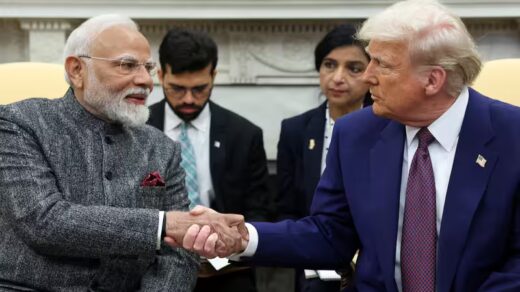
On Friday, January 10th, Venezuela’s Nicolás Maduro was inaugurated for a third term while anti-government protests ran rampant. This will be his third 6-year term, following an election of July 28 that many citizens and politicians have declared a coup. Venezuela’s National Electoral Council — the group responsible for certifying the vote — is filled with Maduro’s loyal allies, and they declared him the winner without evidence.
However, CNN, the Carter Center, the Colombian Electoral Mission, and other independent sources have supported the claims of electoral fraud made by Maduro’s opposition. They believe that the other Presidential candidate, Edmundo González, won 67% percent of the vote. After the outcry of support for Gonzalez, the United States and other nations have recognized him as the rightful winner of the Venezuelan election.
Maduro’s contested election is no surprise. Since he first took office 12 years ago, every single one of his elections have been disputed. His first election followed the death of his Mentor, Hugo Chavez, in 2013. Chavez led the Bolivarian Revolution and served as an anti-establishment leader for almost 15 years, and he picked Maduro as his successor prior to his death. However, Maduro won by a very small margin despite this overwhelming endorsement. His opponent appealed the election results, as Maduro only won by 1.49%, but his claims were discredited by Chavez and Maduro’s supporters on the Supreme Court and national Election Council.
Six years later, Venezuela was suffering from extreme inflation, economic disaster, and food shortages. Maduro’s opponents were banned from running for political office, with some being arrested or forced into exile. In an election with 46% of the country participating, Maduro was elected in 2019. Protests questioning his credibility as a President and calling for his resignation were repressed by the National Guard and militia. Many people were arrested, injured, and killed in these protests.
His third election was surrounded by much of this same violence. After the results were least, his administration arrested more than 2,000 protesters, killed more than 20 people, detained dozens of foreigners, and Maduro and other leaders jailed hundreds of people who criticized the President. Gónzalez and other opposition leaders asked citizens of Venezuelans to join an anti-Maduro protest on the Thursday before the Inauguration. Gonzalez has fled to Spain and another leader, María Corina Machado, has been working inside Venezuela at various undisclosed locations. According to the Foreign Policy journal, Machado came out of hiding to appear at a major pro-democracy protest on Thursday, was detained promptly, and was released because of her threats of international outcry. Maduro’s administration has promised to arrest González upon his return to the country.
Global leaders have refused to allow his antidemocratic behavior to continue. The United States, Canada, the United Kingdom, and the European Union have recently announced sanctions on more than 20 Venezuelan elected officials, on the count of gutting Venezuela’s democracy. According to the Associated Press, “the Biden administration, citing Venezuela’s ‘severe humanitarian emergency,’ also extended for 18 months a special permission allowing 600,000 Venezuelan migrants to stay in the U.S. It also upped to $25 million a reward for the arrest of Maduro.” Only two Presidents were present at his inauguration. His isolation and global humiliation is only the beginning of his weakening grip on power, as mounting international pressure and internal unrest continue to challenge his regime’s legitimacy and stability.
Written by Sirisha Kunamemni


